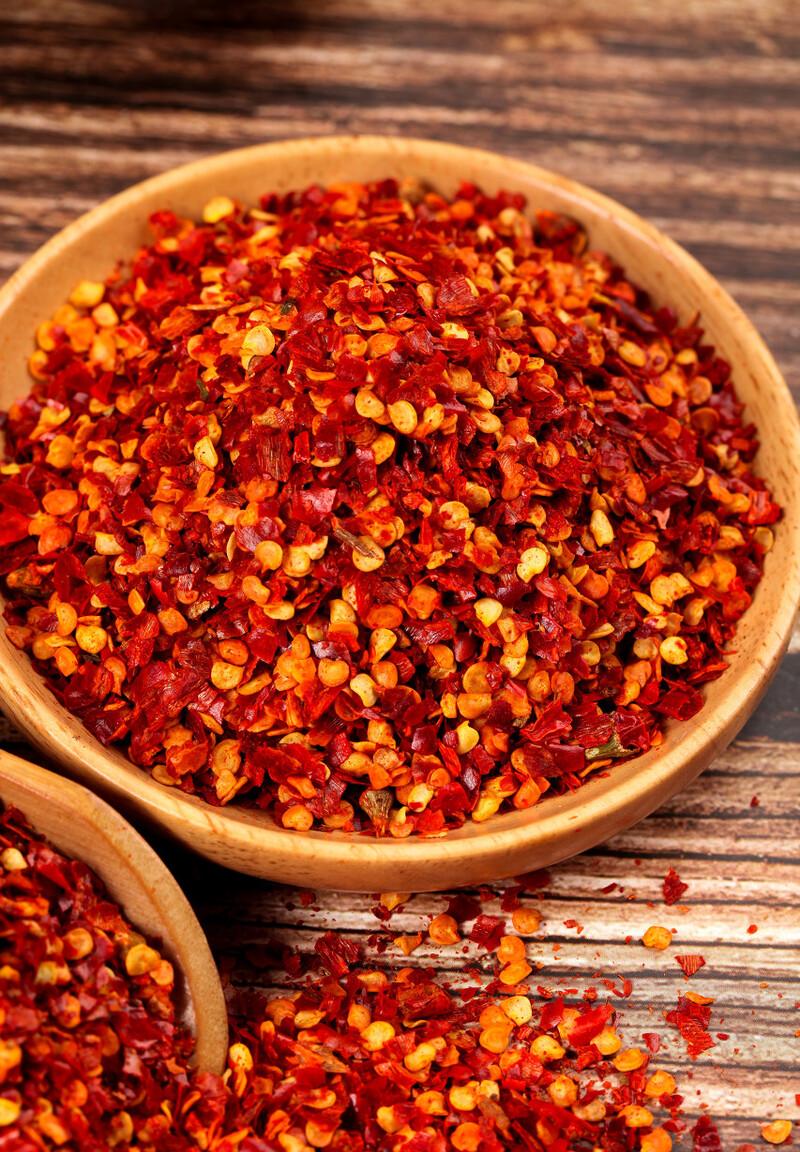Chili pepper, nanyang locals call "Qin pepper". When did this name come from? Neither Lao Wei nor I found relevant scholarly evidence, only that it was handed down from generation to generation by the older generations. Although the old Nanyang people rely only on fragments of childhood memories, we believe that the inheritance of dialects best reflects the genes and bloodlines of local cultures. Because of the depths of history, what has been handed down has its own deep cultural roots, regardless of whether people pay attention to it or not.

The names for food and ingredients in the Nanyang dialect often carry the temperature of the taste. Why the taste of childhood can accompany a lifetime and be particularly attractive, I think it still stems from the original intention of the people on the other side of the landscape. When I was a child, I often heard the grandfathers call dumplings "flat food", rice as "dry rice", and burnt cakes as "fire", even if I now meet a cart selling baked sweet potatoes, a sentence of "Kang scorched hot sweet potatoes", listening to although there is no baked sweet potato foreign atmosphere, but the design can be asserted that the old man who sells sweet potatoes is a native of Nanyang.
Qin pepper, Nanyang people eat a variety of ways, making spices, making sauce is also a very early thing. Dried Qin pepper seasoning, Nanyang beef soup old shop can still be seen. The dry pot is hotly stir-fried, roasted to produce a scorched aroma, pounded on the stone mortar, and drizzled with boiling butter, forcing out the spicy taste is particularly strong. Fresh pepper sauce, is a must, stir-fry sauce fire control is particularly exquisite, spicy authentic and do not lose the fresh flavor; the key to chopped pepper sauce is umami lock, block the air without sticking to raw water, now under the sterilization vacuum technology, preservation is not a problem.
Let's talk about the origin of the word "Qin pepper". Baidu, the "Classic of Mountains and Seas" reads: "Look north to Shaoze." There are many grasses and grasses on it, and its grass is more than Qin pepper. The Qi Min Zhi Shu says: "Shu pepper out of Wudu, Qin pepper out of Tianshui." It can be seen that 1500 years ago, the "Qin pepper" in the Tianshui area of Gansu Province was already famous in the world. The more common saying on the Internet is that Qin pepper is a specialty of the Qin River in 800 miles, which is divided into two kinds, green and dried, and has the reputation of "the king of peppers".
Although the chain of evidence is insufficient, let alone verified, it at least shows that there was a title of "Qin Pepper" 1500 years ago. And the "Qin" of Qin Pepper, whether it is the "Qin" of the Qin State or the "Qin" of Qin Chuan is still unknown, but it seems to be related to both. Nanyang ancient according to the northern tip of Chudi, bordering Qindi, the so-called "Chao Qin Twilight Chu", the dietary customs here, naturally relatively close to the mountains and Shaanxi, passed down from generation to generation, planting Qin pepper, eating Qin pepper seems logical.
Of course, Nanyang, as a transition zone between the north and the south climate and food culture, with the development and prosperity of the city, naturally eclectic, slowly "Qin pepper" native language faded out, and gradually took the official dialect "pepper" as the mainstream title. However, in the streets and alleys, deep in the city, the word "Qin Pepper" is occasionally heard, so naturally there is no need to make a fuss. And the Huaichuan pepper that Lao Wei tried his best to find is ultimately the authentic "Qin pepper" inheritance, and the thick geographical indication makes the unique "Central Plains taste" of the old Wei Yi Baifu pepper sauce complete.